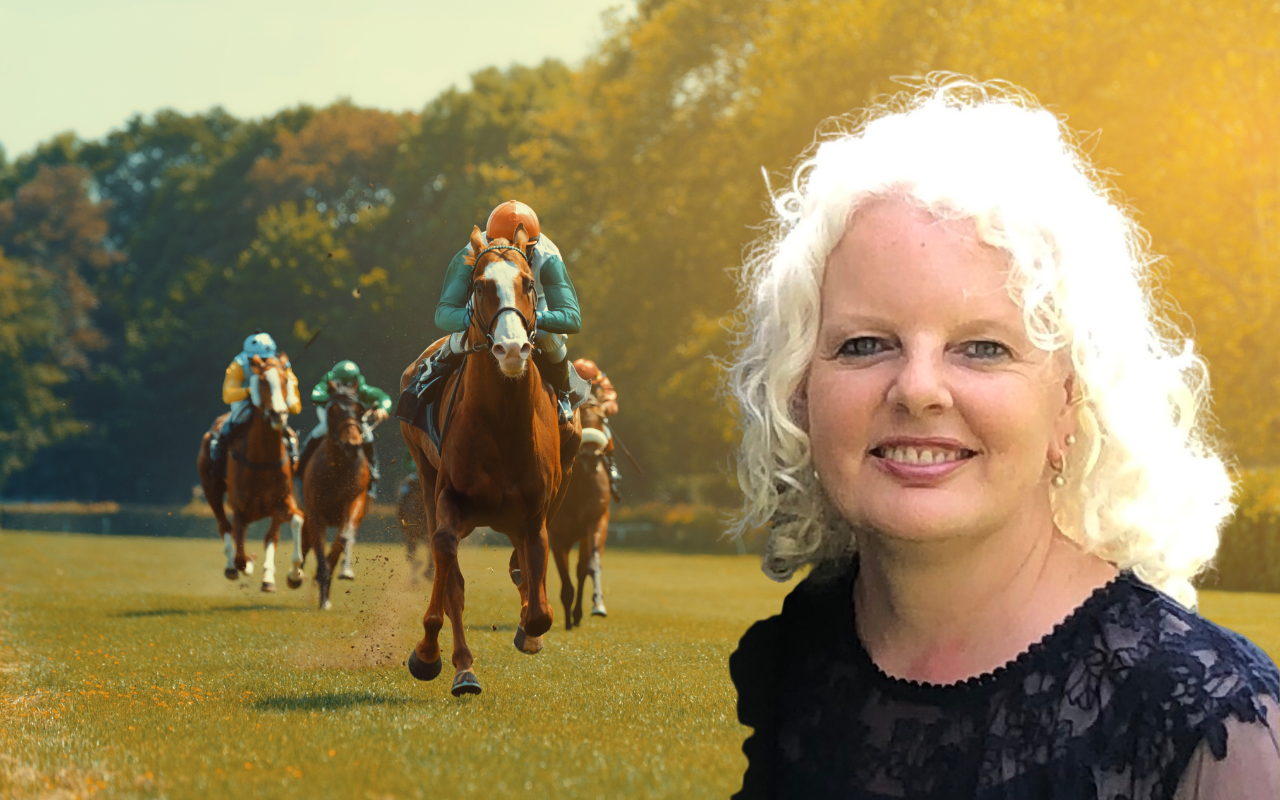The Melbourne Cup of 1991 remains in the memory of one doctor who was staffing a busy emergency department when everyone wanted to watch the race that stops a nation.
Every year, on the first Tuesday of November, I go back there.
It’s a busy day in the emergency department (ED). It feels comical that today we have “the race that stops the nation”. Nothing is stopping in my world. In fact, it is busier than usual. People are limping and staggering into the ED after various mishaps related to long boozy lunches.
There is no long lunch for me. In fact, no lunch at all. Breaks aren’t “a thing” for an ED intern. If there is a quiet stretch, we get to sit down. Nobody leaves the floor.
On this Melbourne Cup Day, it’s noisy everywhere. The machines in the acute section of the ED are beeping. Staff are running around in the cubicle section where I am working. Our flow is completely blocked. “Constipated,” they say. There are no spare rooms or even chairs to see new patients because nobody is moving out to free up space. The waiting time for anything other than a life-threatening event is at least six hours.
It is also noisy in the waiting room. The one good thing is that nobody is complaining today. There is plenty for the patients to watch on the waiting room television. The traditional build-up to the big race was a great distraction. The celebrity fashion, the betting odds, the weather, the other horse races on the program for the big day. The mood in the waiting room is, in fact, quite jolly. Rowdy, actually.

As the hype builds for the race, my frustration also builds. Why do I feel this way? I don’t even like Melbourne Cup Day. If I hadn’t been working today, I wouldn’t have been celebrating. I probably wouldn’t have even watched the race. I have no interest horse racing, the betting culture or anything else that goes along with it. Maybe I am grumpy because it feels like everyone is laughing, like they are in on a joke that I don’t understand. I’m exhausted. I am in the last ten weeks of my internship. It’s been a hard year and there isn’t much to look forward to. I am rostered on for nights over Christmas and I can’t think about anything beyond that.
I feel envious of the party in the waiting room. Maybe they’re sick or injured but they seem relaxed, there is a strange camaraderie, and they are weirdly enjoying the day. Definitely enjoying it more than I am.
One hour blended into the next; it is another hectic day, and it doesn’t feel special. When I pick up the next file, I walk to the waiting room and call the patient’s name.
“Robert Scully*.”
There is no answer. The start of the race is getting closer and all the eyes in the waiting room are glued to the television.
I call again, louder this time. “Robert SCULLY.”
Again, no answer.
I was annoyed and about to declare the case a “DNA” (did not answer) when a man in his late 20s said in a booming laughing voice, “Hey Skull, she’s calling you.”
His friend stands up. “Skull” has a bandage on his ankle, and he holds a long-ago-melted ice pack. He is disappointed about the timing of the call. The jockeys are riding out to the gates.
“Do I really have to come now? The race is about to start,” he says with a grin.
There are some chuckles from other patients who see the irony in someone who had been waiting for hours actually wanting to spend more time than necessary in the waiting room.
I am not amused. I have lots of patients to see. I was annoyed that I had to call him more than once and now he didn’t want to come into the cubicles for assessment.
I look straight at him, completely unamused. I say,
“Are you here to see a horse race or are you here to see a doctor?”
Each November, I am haunted by that moment and overcome with shame for how I spoke to that patient. I feel for the patient who hobbled in for assessment and missed the race. I can also feel compassion for the burnt-out intern whose behaviour was not aligned with her values. So injured that she reflects on the scars every year.
That year, 1991, the Melbourne Cup was won by Let’s Elope in a time of 3:18.90. I wonder how it would have felt to sit with Robert and his mate in the waiting room for three minutes and eighteen point nine seconds and watch the race together. I wonder if it will be okay for a young intern to do that in 2023.
* Name changed for privacy
Associate Professor Meagan Brennan is a breast physician and a senior staff specialist at the Westmead Breast Cancer Institute at Westmead Hospital.
The statements or opinions expressed in this article reflect the views of the authors and do not necessarily represent the official policy of the AMA, the MJA or InSight+ unless so stated.
Subscribe to the free InSight+ weekly newsletter here. It is available to all readers, not just registered medical practitioners.
If you would like to submit an article for consideration, send a Word version to mjainsight-editor@ampco.com.au.

 more_vert
more_vert
Great story and good on the doctor for humanising his work space with something so lovely. I once attended a cataract surgeon’s rooms and he had a wonderful but untitled framed photograph of Cataract Gorge in Launceston, my birth place. I think he was quite chuffed that I recognised it and commented on it to him.
I loved that story about the Race that stops a nation. I think thats the way we learn, by reflecting on the lessons our patients teach us. I work on Tuesdays at an Aboriginal Health Service and every year we have a sweep and stop to watch the race in the waiting room. It is a strong cultural tie for many Australians especially in rural Australia.
Why do you feel shame? It is misplaced. Patient’ pull that line everywhere, you want to see what British emergency sisters say to patients who want to watch the world cup matches in Britain. They don’t feel any shame whatsoever. And when you see an old guy dying during the final with people pushing hi bed out of the way to get a better view of the telly the shame is not upon us staff members.
Very well written. Never stops work for emergency department staff.
I remember I was doing my final year surgical viva on Melbourne Cup day in 1971. (Wow that makes me feel very old!)
Patients only agreed to come and have their lumps palpated and discussed on one condition!
So when the race was about to start examiner, nervous candidate and patient paused, sat on the bed and watched the race before the ordeal resumed!
I passed!
What a great read Meagan and as a retired Consultant Physician with a passion for horse racing I sympathised with both your emotions as a doctor trying to clear the ED deck of a stack of patients and a devastated injured patient whose plans to watch Australia’s greatest race with a beer in hand holding multiple betting tickets from his week’s wages has ended with the catastrophic consequences you described. Unfortunately your story lacks the punch line: this reader wishes to know if “Skull” held the winning ticket?